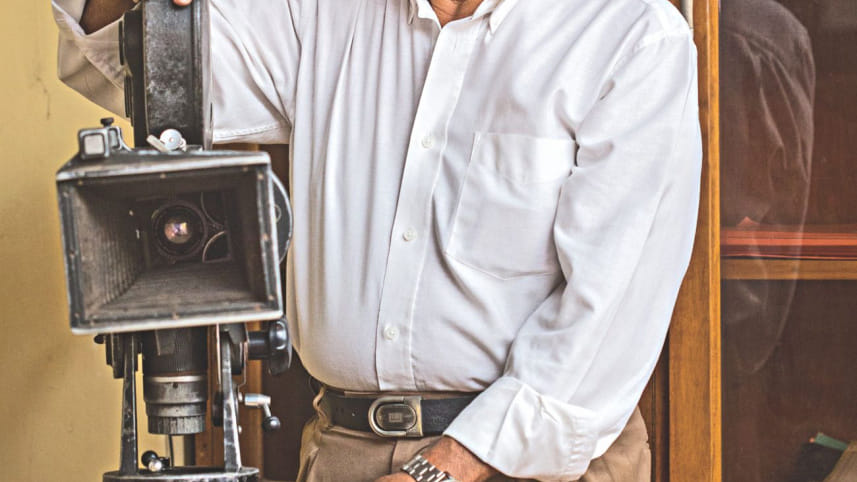Celebrating Life Lifetime Achievement Award Winner Reza Latif

How did you get involved in cinematography?
When I was a kid, I went to FDC with my cousin, who was a film editor, and saw Abdus Samad with a huge camera that really intrigued me. Throughout my college years I went to FDC often and eventually told my cousin that I wanted to work there. He told me that there was no institution that taught cinematography, and that there was no future in this profession. Eventually, I worked with many noted cinematographers in the industry which helped me position myself in the industry.
What was your first feature film?
Actress Shabnam offered me my first film titled “Nacher Putul”, directed by Ashok Ghosh. The movie was done right before the liberation war, and was a hit. In the post-war phase, I made a film titled “Shikrito”. I have done a hundred-and-fifty movies ever since.
Were you involved with anything other than cinematography?
I have produced films before. My first one was “Chitkar” in 1984, directed by Matin Rahman. After that I have produced “Chotobou”, “Attarakkha”, “Atongkito Shotru” and a lot of other movies. I started directing films in 2010 with “Ma Babar Shopno”, which included star such as Razzak, Manna and Apu Biswas. The movie was received well by the audience. After that, I directed “Bhalobashar Shesh Nai”, which was my last directorial effort.
On how many occasions have you received the National Award?
I have received the honorable accolade twice in my career for “Ananta Prem” and “Goriber Bou”. However, I do regret for not winning the award for “Mughl-e-Azam”, which I dearly loved making.
What are you working on now?
I do not see a proper environment to work in, which is why I simply do not. Film production has no value anymore. Back in the days, the producer used to show his own film using a projector, whereas nowadays, other intermediaries do that for profit motive. Most of the profits are made by theater owners, whereas the producer gets less comparatively. This is why I am not working as producer, director nor cinematographer.
What do you think should be done about the situation?
I think the government should take some steps in this regard. Previously, every filmmaker had to come to FDC for everything. That is not the case anymore. The government should take proper measures in ensuring the release of movies through FDC.
Interviewed by Rafi Hossain
& Transcribed by Syed Ahnaf Sadeed



 For all latest news, follow The Daily Star's Google News channel.
For all latest news, follow The Daily Star's Google News channel.
Comments